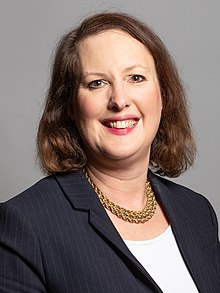Victoria Prentis – 2022 Statement on Food Security Following Russian Invasion of Ukraine
The statement made by Victoria Prentis, the Minister of State at the Department for Environment, Food and Rural Affairs, at the UN Ministerial Meeting on Global Food Security on 18 May 2022.
We are so grateful to the US for leading this week of action.
Food security is now at the top of all of our agendas, since Russia’s invasion of Ukraine.
The effects of the war are brought home to me daily by the 25 year old Ukrainian woman who has come to live in our home. When we can find some phone signal, we talk to her grandparents, who are in occupied Kherson, about their daily struggles to find something to eat.
Famine is once again being used as a weapon of war.
This doesn’t just affect the brave people of Ukraine.
Ukraine’s food and fertiliser exports were feeding up to 400 million people worldwide.
The simplest solution is, of course, for Russia to end the conflict and allow Ukrainian farmers to care for their crops this year.
We must urgently make multiple plans to export last years’ grain by both rail and sea. And I know that my friend, Minister Solsky, is full of solutions in this regard.
We must collectively ensure that trade keeps flowing.
I am pleased that over 50 WTO members have committed to keeping food markets open, predictable and transparent. We should agree to prohibit export restrictions on food bought for the World Food Programme.
The G7 has a key role to play. Under our Presidency we secured the first ever famine prevention compact. I am delighted that Germany is now picking up the baton and taking this further with the Global Alliance on food security.
We must all, including multilateral institutions, scale up our support.
Over the next 3 years, the UK will send £3 billion worth of humanitarian aid to the most vulnerable countries, including in the Horn of Africa, Yemen and Afghanistan.
And the World Bank must deliver the promised $170 billion over the next 15 months.
We particularly think of small island developing states, who are so reliant on imports.
We will continue to use British Investment Partnerships around the world to encourage the universal resilience of global food production.
The need is urgent. We must act coherently and together, and, as they sing in the Ukrainian national anthem, ‘before the dew dies in the sunshine’. And, we need to ensure that the way we produce food remains sustainable in every sense.

